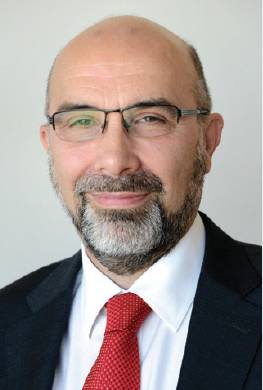Legal profession

Did you know that this article can count towards your CPD if it updated your knowledge? To find out how, visit (https://www.cilex.org.uk/membership/cpd/cpd_resources)
Post-modernism in the challenge for legal services
Dr David Cliff argues that although the concept of post-modernism is changing the face of law, the legal profession will continue to have a central role in society.
 About the author: Dr David Cliff is founder of Gedanken, a leading-edge executive and business coaching organisation.
About the author: Dr David Cliff is founder of Gedanken, a leading-edge executive and business coaching organisation.
We are said to live in an age of post-modernism. This represents a material change in how humans interrelate. A successor to modernism, this paradigm places to one side social conventions and rational approaches that were part of the modernist ideology.
Post-modernism in a societal context
Modernism accompanied scientific rationalism from the growth of Victoriana onwards. It embodied the belief that, ultimately, the world would be understood, and there were immutable rules which could be established both in the scientific and social arenas. We could understand the smallest component of the atom and, at the same time, be capable of understanding social and psychological rules that would allow societies to be ‘socially engineered’. Without doubt, modernism had its flaws as anybody who has seriously evaluated social engineering experiments, including communism, will attest.
Post-modernism, however, is supposed to be the new liberation. Individualism is at its core, with the avoidance of collective rules in favour of free expression, art, commerce, literature, heralding, potentially, a new, liberating Renaissance. Each individual narrative matters, rather than being subject to the powers and conventions of past social structures with glass ceilings, class structures and instruments of social control and privilege.
Nevertheless, this has not worked too well either. Structural preoccupation with how societies should be rarely offer little more than a road map for the complexity of the human psyche and the social phenomena it generates. Yet, with all its faults, post-modernism has provided an opportunity for individuals to throw off the usual class-based boundaries and become entrepreneurs. In addition, there is the prospect that injustices unsung many years ago may be righted, and that the narrative of the ordinary individual can be of value both in the context of social research and, indeed, popular entertainment.
In fact, we can now boast a litany of talent which may be, at best, dubious. However, due to their particular traits, ie, regional accent, or interesting lifestyle or plain outspokenness etc, these individuals have managed to get to the top of the opinion pile in a multichannel, multimedia world.
So, what has this got to do with fee-earners and legal practice?
Well, these things offer both opportunities and threats. An increased societal drive towards individuality means that people will often express their rights, take up causes, and assert themselves through legal systems in ways that were hitherto unprecedented.
We now regularly see people taking class actions for matters that happened years ago. Similar actions are being seen for more contemporaneous events, whether it is the abuse of pension funds or emissions from cars.
We see people taking the very systems that used to administer justice in the past, most notably the police, to task with a range of complaints and High Court actions which would never have been seen previously.
We see a growth of regulation that comes about in a world where human beings respect each other less and require more variants of the rule of law to determine social norms in everything from neighbour disputes to the management of personal data.

Legal practice must adapt and change
Yes, in this post-modern world the face of law is changing, and the traditional approaches of legal practice need to change with it. To a certain extent, this is already evident: we have seen the growth of multiple subspecialisms within the profession. So much so that the singleton, generic high street solicitor can, in some cases, be at a disadvantage once the client requirement goes beyond the traditional fare that the majority of people used to seek.